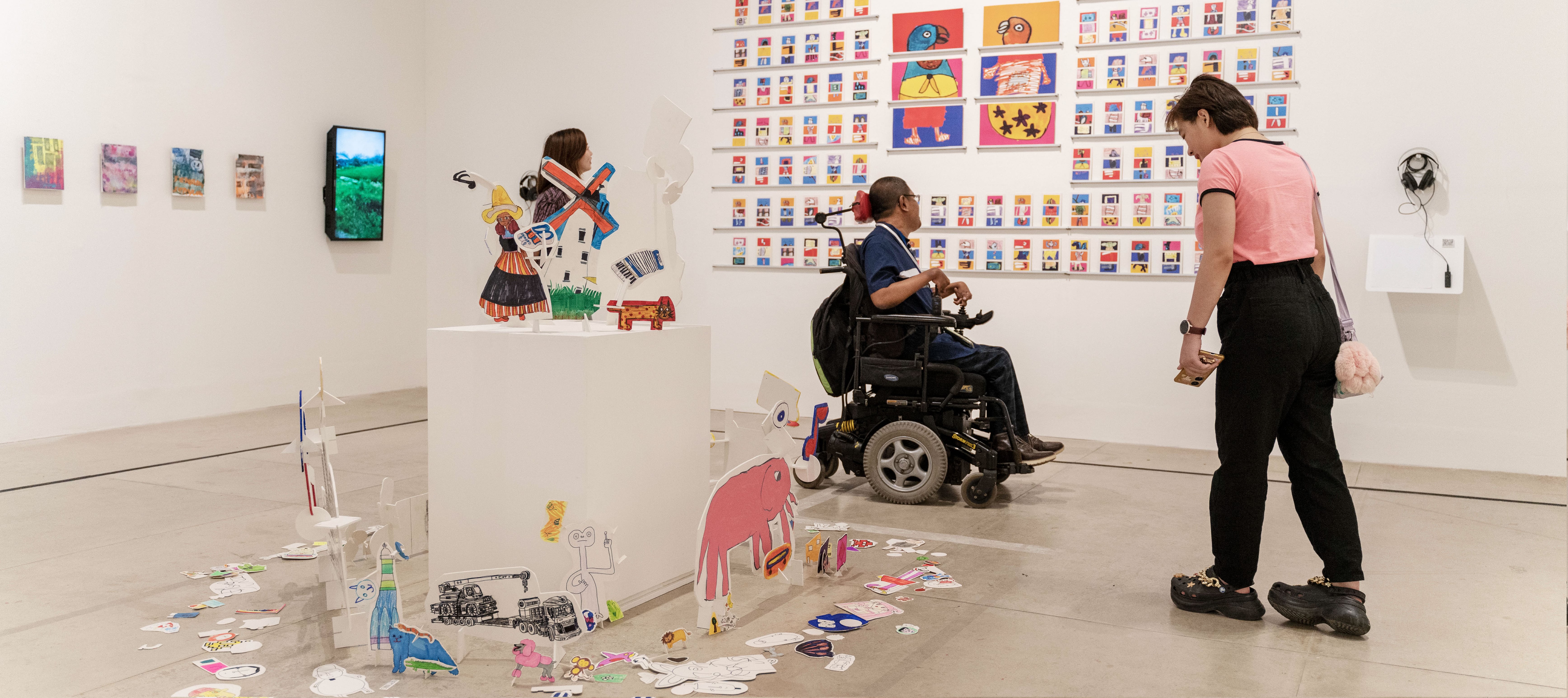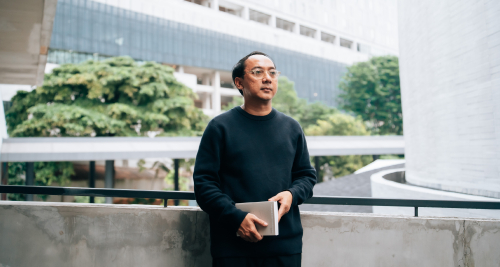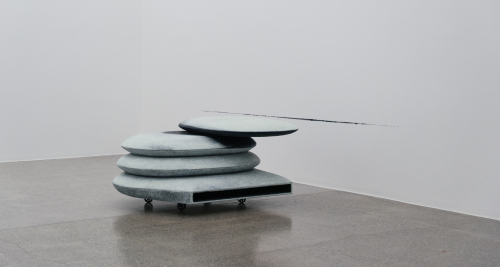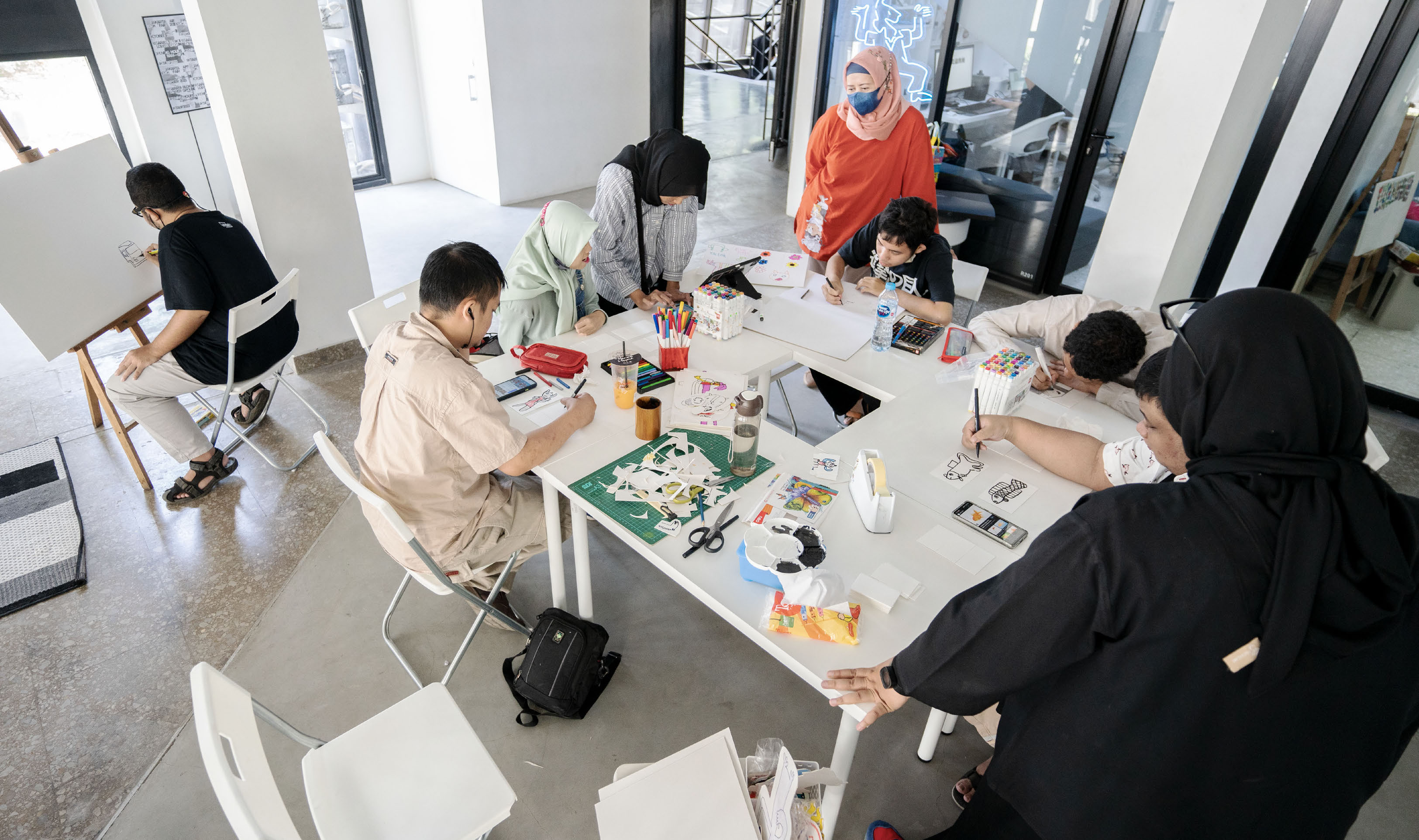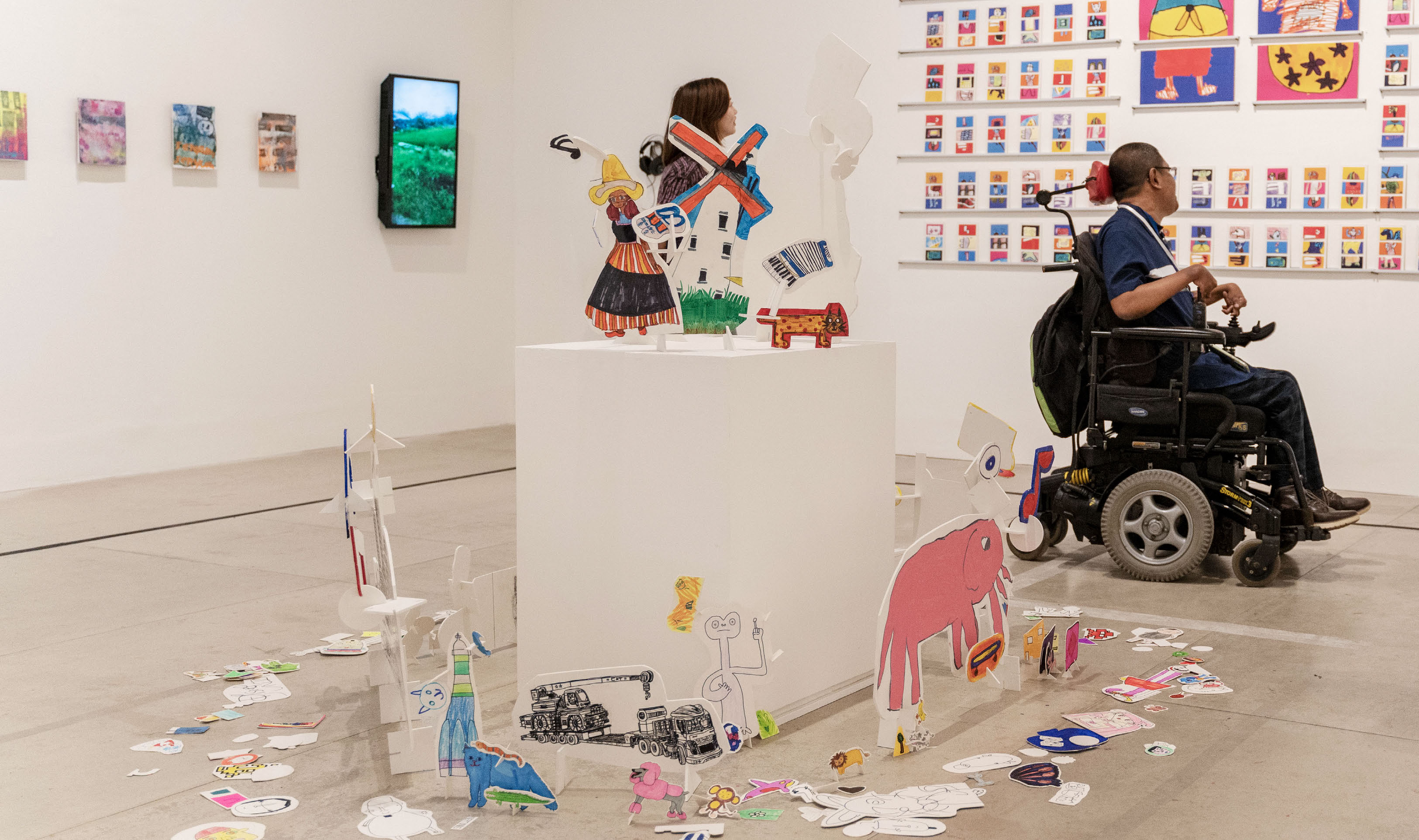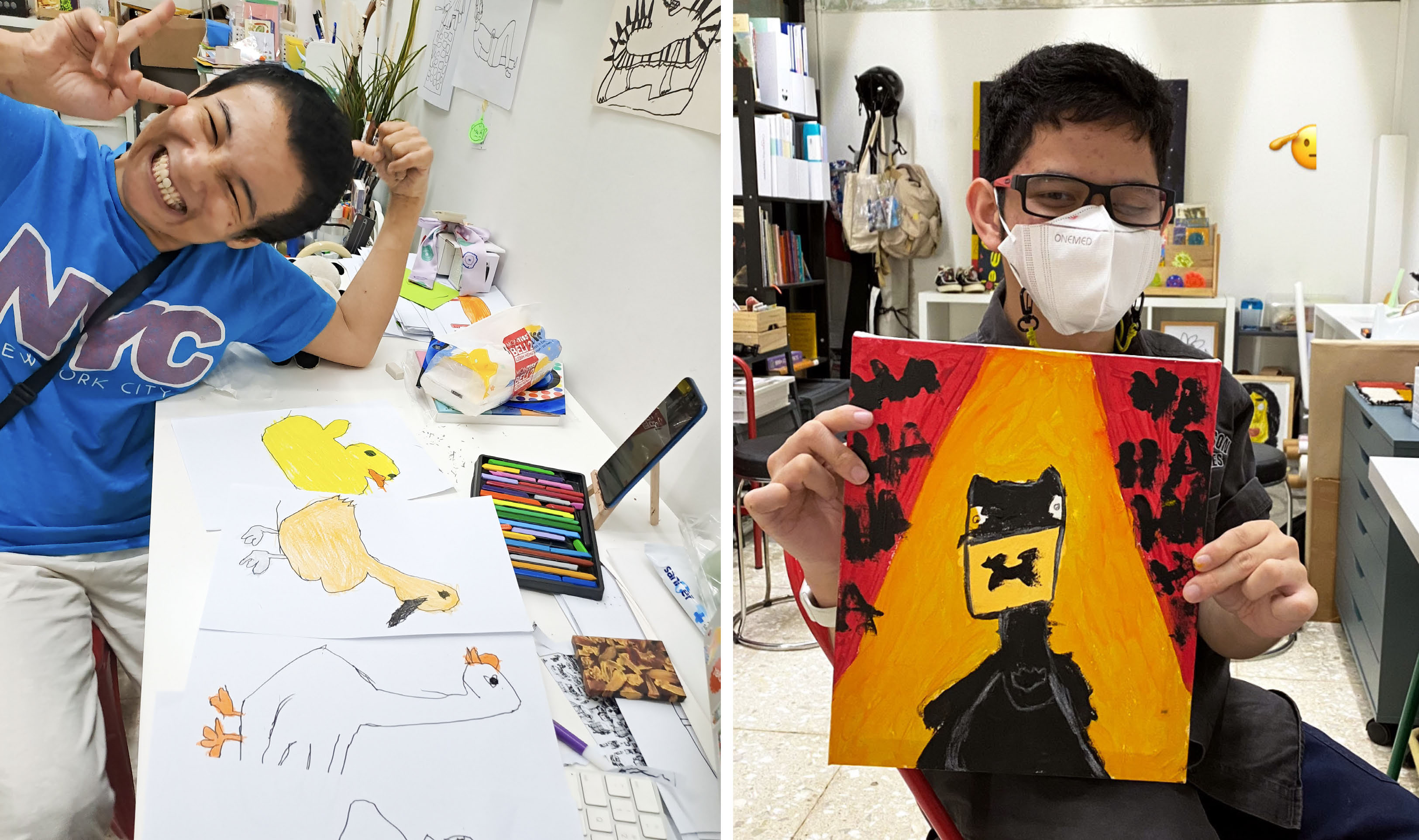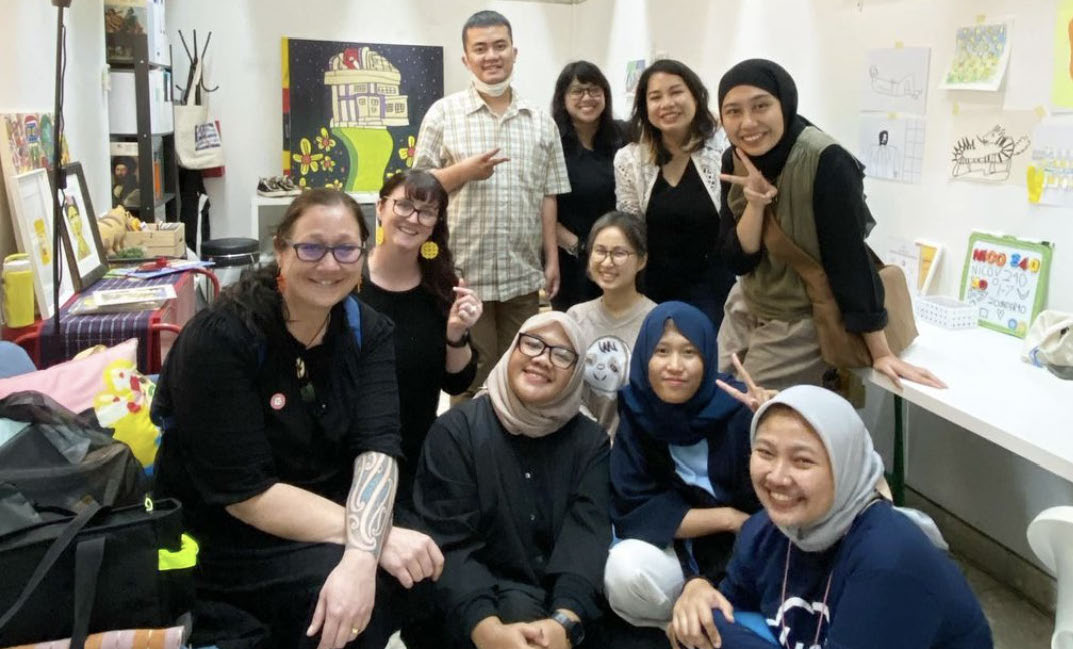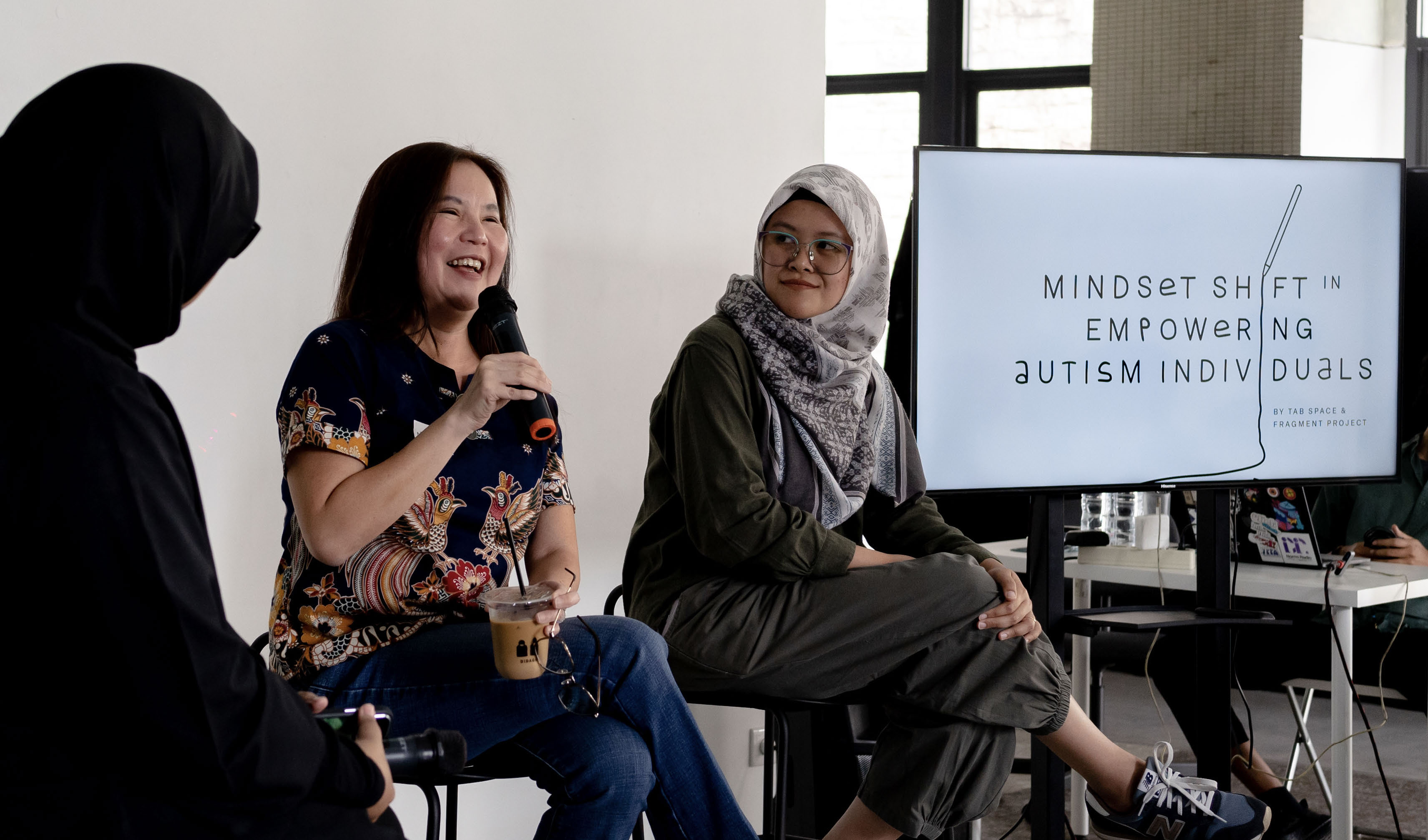Understanding the Importance of the Disabled Creative Community in the Industry of Design with Tab Space
With the theme of this year’s International Design Day being the question, Is It Kind?, industry practitioners are invited to reflect on whether the design practices we’ve undertaken so far have truly been oriented towards kindness and goodness. Clarifying the meaning of the notion, the International Council of Design writes on their official website, "Defining kind design and building kindness into design practice means: Centering humanity.” When talking about humanity, this of course is part and parcel with inclusivity. The theme Is It Kind? prompts reexamination of accessibility and diversity, whether it be in terms of the work created or the availability of equal opportunities in the design industry itself, including that for our disabled peers. Digging deeper into the issue of inclusivity, Grafis Masa Kini sat down with Tab Space, a social enterprise based in Bandung which supports disabled creatives to contribute to the art and design community as well as become a creative practitioner.
With the development of safe spaces, both physically as well as spaces on social media, an increasing number of disabled artists or designers are showcasing their work to the public. In turn, there is also an increasing amount of support available for the disabled creative community. The Tab Space team: Imaniar (Creative Director), Rizka R Safitri (Programme Director), and Nurul Lathifah (Managing Director) share that they often hear stories of the struggles of the disabled community in the past that contrast greatly with conditions today. “Previously, those with ASD (Autism Spectrum Disorder) and IDs (Intellectual Disabilities) were more often than not negatively stigmatized. We’re reminded of a quote from the curatorial text by Hilmi Faiq for Dwi Tunggal’s exhibition, Memeluk Segitiga Makna (2022), on how Nawa Tunggal never considered Pak Wi (his brother) as ‘crazy’, as was common 22 years prior. Nawa Tunggal views Pak Wi as a person who needed to be understood and accompanied,” the Tab Space team explained. If compared side-by-side with today’s reality, said quote also reflects Tab Space’s approach. Although if examined closely, the implementation differs but the same spirit lives on. “That a figure like Nawa Tunggal as a support system, no longer ends with family. But has now expanded to take forms such as communities, events, or neurodiverse studios just as what Tab Space is pursuing today.”
Tab Space is not alone in providing support for the creative disabled community. Many art and design industry networks also provide opportunities for disabled creatives. "Like Selasar Sunaryo in the exhibition project Lengan terkembang: ruas lintas-abilitas (English: “Developed Arm: Segments Across Abilities”) with disabled artists in 2023, an activation project with Grammars, a concept shop from Bandung, which brought the work of disabled artists closer to the public and the market in 2023, as well as various other projects that we worked on together. We are happy to see this activity (appreciation of disabled artists) also happening in other cities in Indonesia, such as with Jogja Disability Art (JDA) in Yogyakarta or Terartai in Jakarta. "Hopefully it will become a consistent movement and can be of use for disabled artists in Indonesia," explained the Tab Space team.
The amount of support available to disabled creatives has yet to fully address all the challenges faced by our disabled peers each and every day in pursuing a creative practice in the design industry. According to Tab Space's experience and observations, the disabled community is still in need of facilities that help disabled people pursue creativity in exhibition spaces or creative spaces, as well as insight into the provision of these facilities. Aside from that, inclusive and safe communal work spaces are also needed as not all disabled artists or designers have the opportunity or privilege to be in these spaces. "Apart from that, there is an opportunity for disabled artists or designers to be involved and be considered in programs or activities in the design industry so that their work can also be spread to wider circles," added the Tab Space team.
In actualizing concrete support for disabled creatives, the word "space" in Tab Space itself indicates that space is one of the most important elements in work. "When we first established the entity, we insisted on having a physical space even though at that time the Work From Home (WFH) work system after Covid-19 was still a trend." Tab Space realizes that not all disabled artists and designers have the privilege to work at home due to factors like the lack of tools or facilitators to accompany them during the work creation process. "When creating a physical space, we experienced a learning process, starting from a space that was bright and spacious even though access was difficult to a space that was small but accessible and hypersensitive sensory friendly. This learning curve is a big challenge, we had to dig and look for it without a mentor. But with the grace of God, we always found a way to meet new friends and gain new knowledge," recalled the Tab Space team. The next challenge Tab Space encountered was providing space, not only physical space but also access to publications. "Several times we talked with fellow visionaries from outside Indonesia, we always felt jealous of their government's support. Hopefully in the future we will receive support from within the country, okay?" added the Tab Space team with great hope.
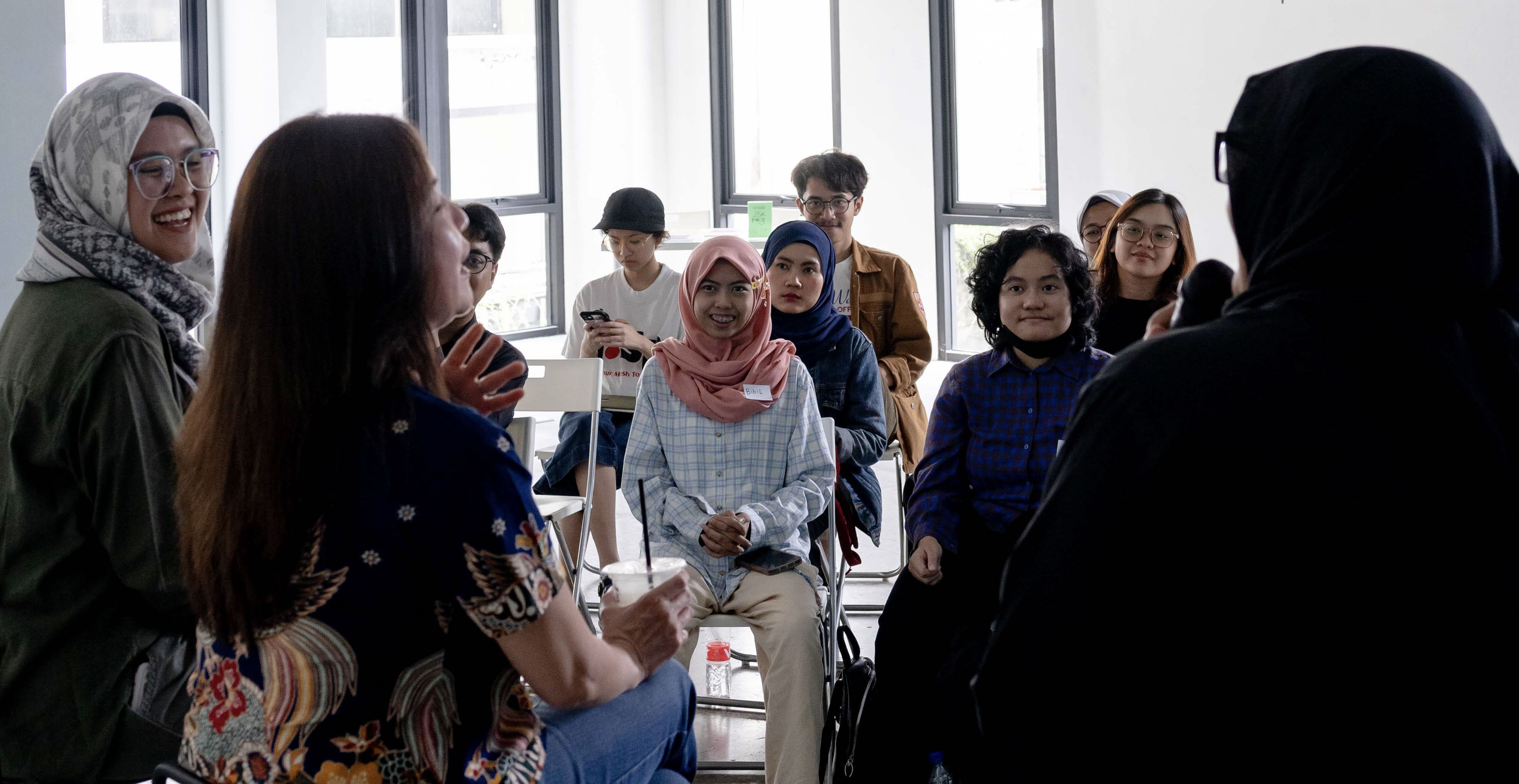
Since its inception, Tab Space has provided a safe and comfortable work studio for the creative disabled community. Since they’ve been active, Tab Space has also been open to collaboration both in the form of projects and discussion rooms. "In 2023, we opened a discussion with Maisie Soetantyo (Autism Career Pathways) and Ardhana Riswarie (Certified Art Therapist) regarding steps to support neurodivergent creative work and careers. We invited several special schools in the city of Bandung as well as the parents of our artists to participate as discussion participants. Apart from that, our involvement in Lengan Terkembang - Selasar Sunaryo also somehow provided new insights about managing exhibitions for artists with disabilities, new mediums in work that can be explored, and how to become an appropriate support system for artists with disabilities," said the Tab Space team. Another step that Tab Space is taking to continue learning and building connections with disabled creative in the art and design ecosystem is by building networks and relationships with fellow design studios.
Safe spaces and broad opportunities for the creative disabled community are of course the responsibility of one single person or organization, but of all design practitioners. The Tab Space team said that design industry players must have the mindset that everyone can play a significant role in their own way. "Creating an inclusive space means involving the entire ecosystem to take their respective share: consistent work carried out by the creative disabled community, innovation from the surrounding support system (the industry can play a role here), as well as expanding relationships to create a more massive movement," stressed Tab Space. The more design practitioners participate, the closer the design industry in Indonesia will be to an inclusive and open ecosystem. Aside from that, the realization of these spaces for the creative disabled community also opens up opportunities for them to collaborate with other artists or designers. "Giving this opportunity, for example, to exhibit, is not only limited for disabled communities, but also to all audiences of artists in professional environments," added Tab Space.
Support for the creative disabled community is also a concern of the Indonesian Graphic Designers Association (ADGI). When interviewed by Grafis Masa Kini, Ritchie Ned Hansel, Chairman of ADGI, said that the association and its members will continue to fight to make the design industry in Indonesia an inclusive space. "This is realized by opening up spaces for work and design discourse that can be accessed by anyone without restrictions," explained Ritchie. Muhammad Imaduddin, Secretary General of ADGI, added that ADGI saw that several educational institutions in Indonesia had produced graphic design education graduates from creative disabled groups who had extraordinary works. "Several of our members have been supervisors and examiners for their final assignments, and we feel that in the future, as long as they still have the ability to capture, digest and translate design principles into their work, the door to a career as a graphic designer will be increasingly open for our disabled creative peers," said Imad. In 2022, ADGI through a collaborative program called ASPaC (Asia Student Package Design Competition) in collaboration with The Japan Foundation, Jakarta, had one winner from the creative disabled community. "This is proof that now there are many opportunities where they can achieve an equal or even superior position," added Imad.
Spaces like Tab Space act as a bridge between the creative disabled community and the design industry. The small steps taken by Tab Space have a big impact on inclusivity in the realm of art and design—providing concrete examples of equality and diversity that serve as inspiration for future design practitioners. Closing the conversation, Tab Space said that its team tries to always be open about the work they do by sharing information about activities on the official website www.tabstudio.org. On May 10-18, Tab Space will hold a Tab Space Showcase at the Fragment Project, Bandung, which will feature a project showcase, biennial report launch, new collaboration launch, discussions about projects with current collaborators, as well as sales of hidden tab and fresh works. from the oven which has never been released before. "Let's get to know Tab Space, we look forward to welcoming you!" closed the Tab Space team enthusiastically.
